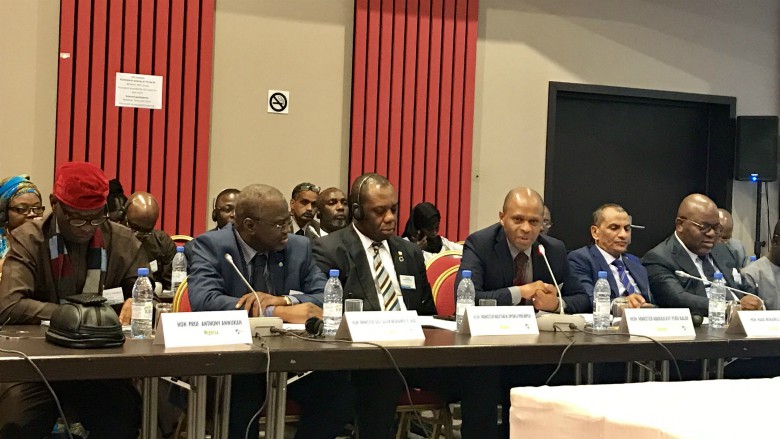On January 15, 2018, the Partnership for skills in Applied Sciences, Engineering and Technology (PASET), an Africa-led initiative facilitated by the World Bank, hosted a Ministerial Meeting on Higher Education and Skills Development in Dakar, Senegal. The meeting addressed the progress and challenges in higher education and technical vocational education and training (TVET) on the continent, facilitating an exchange of ideas on how PASET can tackle these challenges.
Ministers of Education/Higher Education from 10 Sub-Saharan African countries, ministerial representatives from eight other countries, members of the PASET Board of Directors and Executive Committee, and the World Bank participated in the meeting.
Prof Aminata Sall Diallo, who leads PASET's Executive Committee and represents the Government of Senegal, provided a brief overview of PASET, followed by each of the participating Ministers/representatives sharing their thoughts on the status of higher education and skills development in their countries. They also identified key common challenges, such as limited access to higher education, lack of infrastructure for research and innovation, outdated curricula that are not aligned with labor market demand, adapting to an increasingly digital economy, and a growing need for more STEM graduates.
Recognizing these challenges, most of the countries shared their efforts to prioritize higher education and skills development at the national level through the introduction of skills strategies. These strategies focus on science, technology and digital education, establishing new universities and vocational training institutes, training faculty with a focus on pedagogy, and updating curricula to become more market-relevant as some key areas. The Minister of Higher Education, Research and Innovation of Senegal and Chair of the PASET Board of Directors, Hon. Prof. Mary Teuw Niane, presented in detail some of Senegal’s efforts to reform the higher education system. As part of its strategic plans, Senegal is prioritizing STEM and ICT education and short vocational trainings, expanding access to higher education and investment in research and innovation, improving governance of public and private higher education institutions, and internationalizing Senegalese research and higher education areas among other actions.
The Ministers/representatives appreciated PASET as an initiative led by Africans for Africans, and its efforts to build scientific-technical capacity on the continent with the help of the World Bank and other international partners. They expressed strong interest in joining the partnership and benefiting from its initiatives such as the Regional Scholarship and Innovation Fund (RSIF) and Regional TVET Centers of Excellence.
Dr. Sajitha Bashir, Education Practice Manager for East Africa at the World Bank, noted that PASET’s regional approach complements African countries’ national programs and efforts by offering an operational platform to mobilize finances for PhD training, research and innovation, as well as providing technical assistance to help them develop their own skills development plans. Moreover, it provides a platform for knowledge sharing where countries have an opportunity to learn from each other’s experiences and adopt best practices.
Concluding the meeting, Dr. Halil Dundar, the Bank's Education Practice Manager for Central and Southern Africa, shared some key messages from the World Bank’s latest analytical works on education including the World Development Report, its upcoming regional study on learning, and regional skills report. In particular, he highlighted these reports’ emphasis on the importance of investing in strong foundational skills, STEM education, and education quality in addition to access, as well as the need for industry and demand-driven programs for skills development and higher education.


